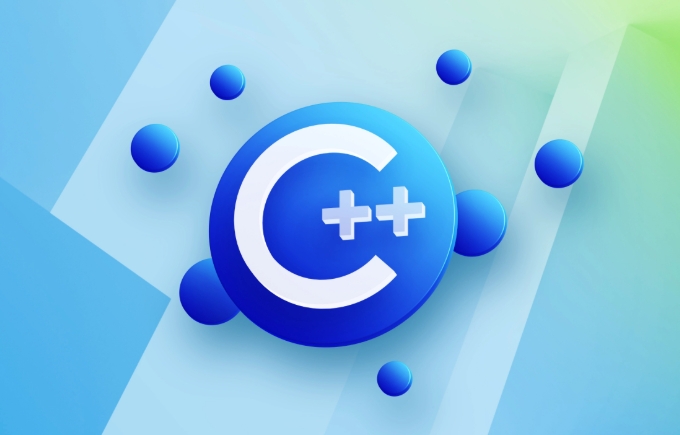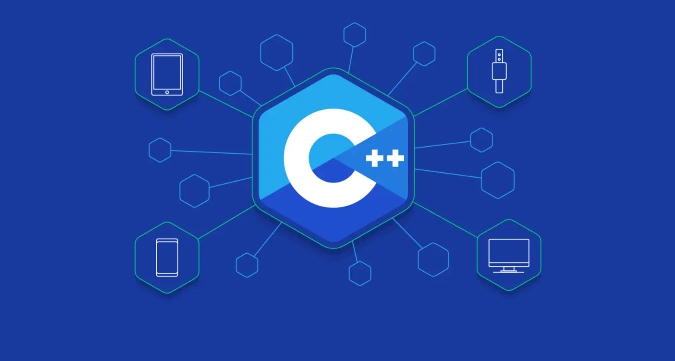The root cause of encountering the "undefined reference to function" error is that the linker cannot find the implementation of the function. Specific reasons include: ① The function declaration is not defined only; ② The function definition is misspelled or inconsistent; ③ Multiple source files are not correctly linked; ④ The static library/dynamic library is not correctly linked. The solutions are: ? Check whether the function is implemented in a .cpp file; ? Check the consistency of function signatures; ? Ensure that multiple file projects are compiled and linked together; ? Add correct link parameters when calling third-party libraries; ? Add class scope when using class member functions. Just follow the steps to locate and resolve the problem.

An error of "undefined reference to function" is encountered, which means that your C program cannot find the implementation of a certain function during the linking stage. This is not a compilation problem, but an error reported by the linker. Simply put: you declare the function, and you call it, but you don't give the linker an actual function body.

Why does an undefined reference error appear?
This type of error is usually caused by the following reasons:

- Function declaration is only undefined : you wrote the function prototype in the header file or code, but forgot to write the specific implementation of the function.
- Function definition spelling errors : such as inconsistent parameter types, different case of function names, etc.
- Multiple source files are not correctly linked : If you implement the function in another
.cppfile, but it is not compiled or linked together at compile time. - Static/dynamic library is not linked correctly : This error will also occur if the correct linking option is not specified when using third-party libraries.
For example:
// main.cpp
int add(int a, int b); // Declare int main() {
int result = add(2, 3); // Call return 0;
} The above code will not compile errors, but it will prompt undefined reference to 'add(int, int)' when linking, because you did not write the implementation of add function at all.

How to solve this problem?
? Check if the function is really implemented
Make sure that the function you call has a complete function body in a certain .cpp file. For example:
// add.cpp
int add(int a, int b) {
return ab;
} Then when compiling, all relevant .cpp files need to be compiled together, for example:
g main.cpp add.cpp -o myprogram
If it is not compiled together, the linker cannot find the implementation of add .
? Check whether the function signature is consistent
Sometimes it looks like the same function, but in fact the parameter types or numbers are different, which can also cause link failure. for example:
// Declaration is int add(int, int)
int add(int a, int b);
// Implementation is double add(int, int)
double add(int a, int b) {
return ab;
}Although the name is the same, the return value and type do not match, which will cause the linker to not find the corresponding function.
? Remember to add scope when using class member functions
If you are calling a member function of the class but forget to add the class name and scope resolution operator :: , an error may also be reported. For example:
class Math {
public:
static int square(int x);
};
// Forgot to write Math::square
int square(int x) { // This is a global function, not a return x * x in the class;
} At this time, calling Math::square(5) will report an undefined reference.
? Third-party libraries need to be linked correctly
If you are calling functions outside the standard library (such as OpenGL, SDL, Boost, etc.), you need to add the corresponding link parameters to the compile command. For example:
g main.cpp -lGL -lGLU -o myglapp
Here -lGL means linking to the OpenGL library. Without these parameters, the linker will naturally not find those library functions.
Summarize how to check
- [] Check whether there are any missed function implementations.
- [] Check whether the signature of the function declaration and implementation are exactly the same.
- [] Multi-file project confirmation is involved in compilation and linking.
- [] If an external library is used, confirm whether the correct link parameters have been added.
- [] Pay attention to whether the class member function uses the correct qualifiers and scope.
Basically these are the situations. This kind of error may seem scary, but as long as you check it according to the steps, you can generally locate it. The key is to understand that this is a problem at the link stage, not a syntax error.
The above is the detailed content of undefined reference to function error in C. For more information, please follow other related articles on the PHP Chinese website!

Hot AI Tools

Undress AI Tool
Undress images for free

Undresser.AI Undress
AI-powered app for creating realistic nude photos

AI Clothes Remover
Online AI tool for removing clothes from photos.

Clothoff.io
AI clothes remover

Video Face Swap
Swap faces in any video effortlessly with our completely free AI face swap tool!

Hot Article

Hot Tools

Notepad++7.3.1
Easy-to-use and free code editor

SublimeText3 Chinese version
Chinese version, very easy to use

Zend Studio 13.0.1
Powerful PHP integrated development environment

Dreamweaver CS6
Visual web development tools

SublimeText3 Mac version
God-level code editing software (SublimeText3)

Hot Topics
 C Destructors code samples
Jun 13, 2025 am 12:04 AM
C Destructors code samples
Jun 13, 2025 am 12:04 AM
The destructor in C is used to free the resources occupied by the object. 1) They are automatically called at the end of the object's life cycle, such as leaving scope or using delete. 2) Resource management, exception security and performance optimization should be considered during design. 3) Avoid throwing exceptions in the destructor and use RAII mode to ensure resource release. 4) Define a virtual destructor in the base class to ensure that the derived class objects are properly destroyed. 5) Performance optimization can be achieved through object pools or smart pointers. 6) Keep the destructor thread safe and concise, and focus on resource release.
 C Polymorphism : is function overloading a kind of polymorphism?
Jun 20, 2025 am 12:05 AM
C Polymorphism : is function overloading a kind of polymorphism?
Jun 20, 2025 am 12:05 AM
Yes, function overloading is a polymorphic form in C, specifically compile-time polymorphism. 1. Function overload allows multiple functions with the same name but different parameter lists. 2. The compiler decides which function to call at compile time based on the provided parameters. 3. Unlike runtime polymorphism, function overloading has no extra overhead at runtime, and is simple to implement but less flexible.
 What Are the Different Kinds of Polymorphism in C ? Explained
Jun 20, 2025 am 12:08 AM
What Are the Different Kinds of Polymorphism in C ? Explained
Jun 20, 2025 am 12:08 AM
C has two main polymorphic types: compile-time polymorphism and run-time polymorphism. 1. Compilation-time polymorphism is implemented through function overloading and templates, providing high efficiency but may lead to code bloating. 2. Runtime polymorphism is implemented through virtual functions and inheritance, providing flexibility but performance overhead.
 How to Implement Polymorphism in C : A Step-by-Step Tutorial
Jun 14, 2025 am 12:02 AM
How to Implement Polymorphism in C : A Step-by-Step Tutorial
Jun 14, 2025 am 12:02 AM
Implementing polymorphism in C can be achieved through the following steps: 1) use inheritance and virtual functions, 2) define a base class containing virtual functions, 3) rewrite these virtual functions by derived classes, and 4) call these functions using base class pointers or references. Polymorphism allows different types of objects to be treated as objects of the same basis type, thereby improving code flexibility and maintainability.
 C : Is Polymorphism really useful?
Jun 20, 2025 am 12:01 AM
C : Is Polymorphism really useful?
Jun 20, 2025 am 12:01 AM
Yes, polymorphisms in C are very useful. 1) It provides flexibility to allow easy addition of new types; 2) promotes code reuse and reduces duplication; 3) simplifies maintenance, making the code easier to expand and adapt to changes. Despite performance and memory management challenges, its advantages are particularly significant in complex systems.
 C Destructors: Common Errors
Jun 20, 2025 am 12:12 AM
C Destructors: Common Errors
Jun 20, 2025 am 12:12 AM
C destructorscanleadtoseveralcommonerrors.Toavoidthem:1)Preventdoubledeletionbysettingpointerstonullptrorusingsmartpointers.2)Handleexceptionsindestructorsbycatchingandloggingthem.3)Usevirtualdestructorsinbaseclassesforproperpolymorphicdestruction.4
 Polymorphism in C : A Comprehensive Guide with Examples
Jun 21, 2025 am 12:11 AM
Polymorphism in C : A Comprehensive Guide with Examples
Jun 21, 2025 am 12:11 AM
Polymorphisms in C are divided into runtime polymorphisms and compile-time polymorphisms. 1. Runtime polymorphism is implemented through virtual functions, allowing the correct method to be called dynamically at runtime. 2. Compilation-time polymorphism is implemented through function overloading and templates, providing higher performance and flexibility.
 What Are the Various Forms of Polymorphism in C ?
Jun 20, 2025 am 12:21 AM
What Are the Various Forms of Polymorphism in C ?
Jun 20, 2025 am 12:21 AM
C polymorphismincludescompile-time,runtime,andtemplatepolymorphism.1)Compile-timepolymorphismusesfunctionandoperatoroverloadingforefficiency.2)Runtimepolymorphismemploysvirtualfunctionsforflexibility.3)Templatepolymorphismenablesgenericprogrammingfo






